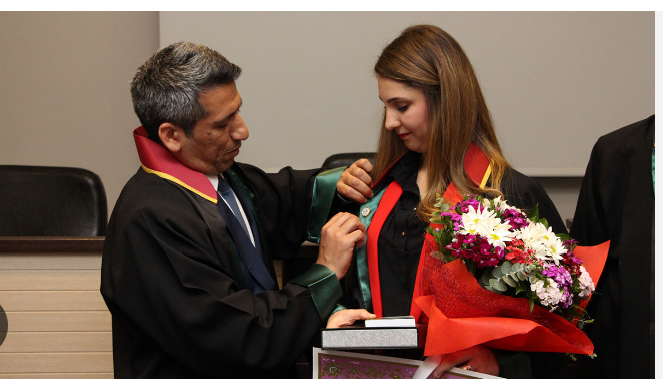By Dr. ius. A. Serçin Kutucu
Low-income employment and limited career prospects have left Turkish lawyers frustrated. They must upskill and reskill to navigate the challenges of a transforming legal market. Lawyers who aim to expand their knowledge, client base, employment opportunities, professional networks, and income must gain competency in legal English.
While working as an academic in the law faculty, I was tasked to teach legal English in addition to my main courses. Language skills are crucial in today’s legal education; however, these classes were highly challenging. After having taught several of them, I realised that the students were unaware of the importance of learning a global language and lacked the essential foundational knowledge and motivation. The challenge of instruction was even higher than I had anticipated.
Unfortunately, the Turkish education system does not provide solid, well-designed language teaching. Because of this, students lack the foundation to become proficient in a foreign language. Moreover, the curricula of law faculties are, for the most part, far from realistic or attainable in terms of specialised language learning. As a result, while law students graduate with ornate diplomas, they lack the necessary language skills that the current job market demands.

Language education is an investment in human capital
Academic studies and several non-academic surveys reveal a correlation between English language skills and income. Economists find that competency in English significantly affects international trade flows, foreign direct investment, the internationalisation of small to medium-sized enterprises, entrepreneurship, mobility (including tourism, education, and work), employability, and scientific and technological investments. Researchers observe that employees with language skills are often offered higher salaries.
Learning a global language is an investment in human capital because it extends possibilities and opportunities beyond national borders. English has become increasingly important as the lingua franca, precisely for this reason. It is not only the official language of international and supranational organisations such as the United Nations, Council of Europe and European Union, but also the study or work language in universities and government institutions of several non-English speaking countries.
Globalization requires lawyers to improve their language skills
Lawyers find themselves in a multicultural legal environment shaped by international commerce, multinational corporations as well as international and supranational organisations. Proficiency in English has now become a requirement to navigate and communicate in cross-cultural contexts. It has also become indispensable for keeping up with the latest juridical advancements, scholarly writings, and relevant technological developments. As the global economy transforms, so does the legal industry, requiring highly skilled legal professionals who can understand and resolve the legal complexities of an increasingly interconnected world.
Turkish lawyers must empower themselves to succeed in today’s legal landscape
The Turkish legal workforce needs to upskill and reskill to adapt to today’s globally integrated legal market. Lawyers must develop competencies to cope with its complexities to expand their career opportunities and life trajectories. In recent years, there has been a significant increase in the number of law graduates and a notable decrease in the quality of legal education. This has led to an oversupply of legal professionals who lack adequate knowledge and skills to meet the profession’s demands. Many young lawyers are prone to working long hours to earn a minimum wage income in occupations that do not provide better career prospects. Combined with intense competition in the market, they often find themselves feeling trapped and worn out.
Legal English supports career advancement and improves living standards
Language proficiency expands the career opportunities of Turkish lawyers in various ways. First, it enables them to perform in an international legal setting. This contributes to the expansion of their client base, broadening their job opportunities and enhancing their chances of securing desirable positions. It expands their employability to include international law firms, multinational corporations, government agencies and international organisations or to have them as their clients.
A strong command of professional English also allows lawyers to access a wealth of legal resources, stay abreast of global trends, be more innovative, and remain relevant to the rapidly evolving legal field. It supports research and study, thereby facilitating specialisation in particular fields or aspects of law, if they wish to do so, by enabling access to internationally produced knowledge and broader legal discussions. Additionally, it enables them to connect with colleagues from different jurisdictions, expand their professional network and exchange ideas. This, in turn, supports the improvement of the quality of their legal services, leading to higher salaries and income.
As a result, legal English proficiency unlocks a world of possibilities and opportunities for career advancement for legal practitioners. It capacitates them to remain aligned with international standards and practices supporting their continued professional growth. As they develop into skilled legal professionals, they set themselves apart in an increasingly competitive legal market. Ultimately, each individual’s improvement contributes to raising the standards and the overall quality of the Turkish legal system.
Dr. A. Serçin Kutucu is a legal expert and consultant with a doctorate in EU Law and a master’s degree in International Human Rights Law. She has taught “EU Law” to graduate students and “International Migration and Refugee Law” to postgraduates at the university. She has been involved in various EU-funded projects as a consultant and continues to teach. As a legal language enthusiast, Dr. Kutucu has been teaching Legal English since 2017. She is a member of the International Legal English Teachers Association (ILETA) and the Legal Writing Institute. She describes her Legal English courses as an “essential component for the internationalization of the Turkish legal industry”. Visit her website and LinkedIn pages.
Follow our English language YouTube videos @ REAL TURKEY: https://www.youtube.com/channel/UCKpFJB4GFiNkhmpVZQ_d9Rg
And content at Twitter: @AtillaEng
Facebook: Real Turkey Channel: https://www.facebook.com/realturkeychannel/
